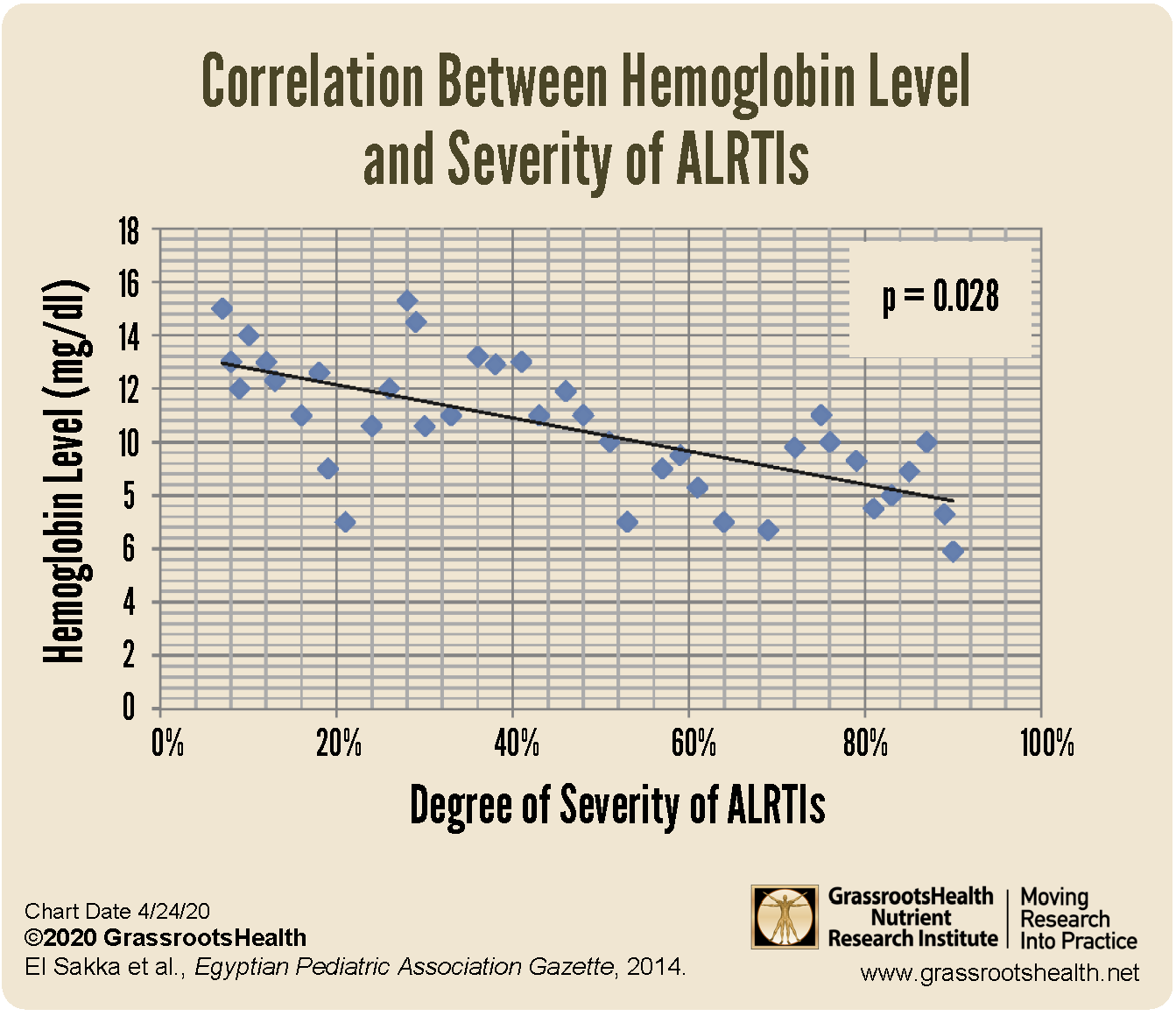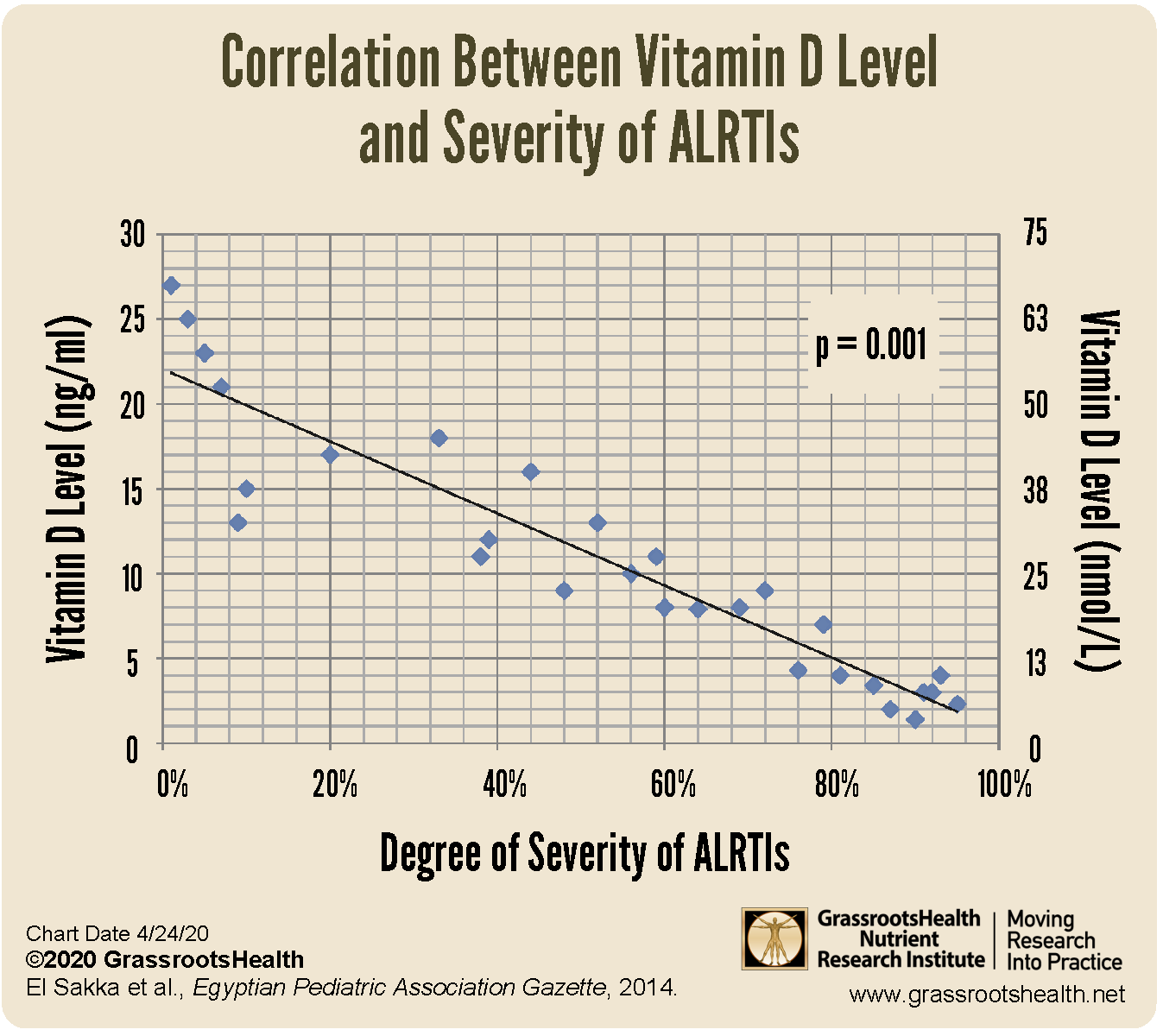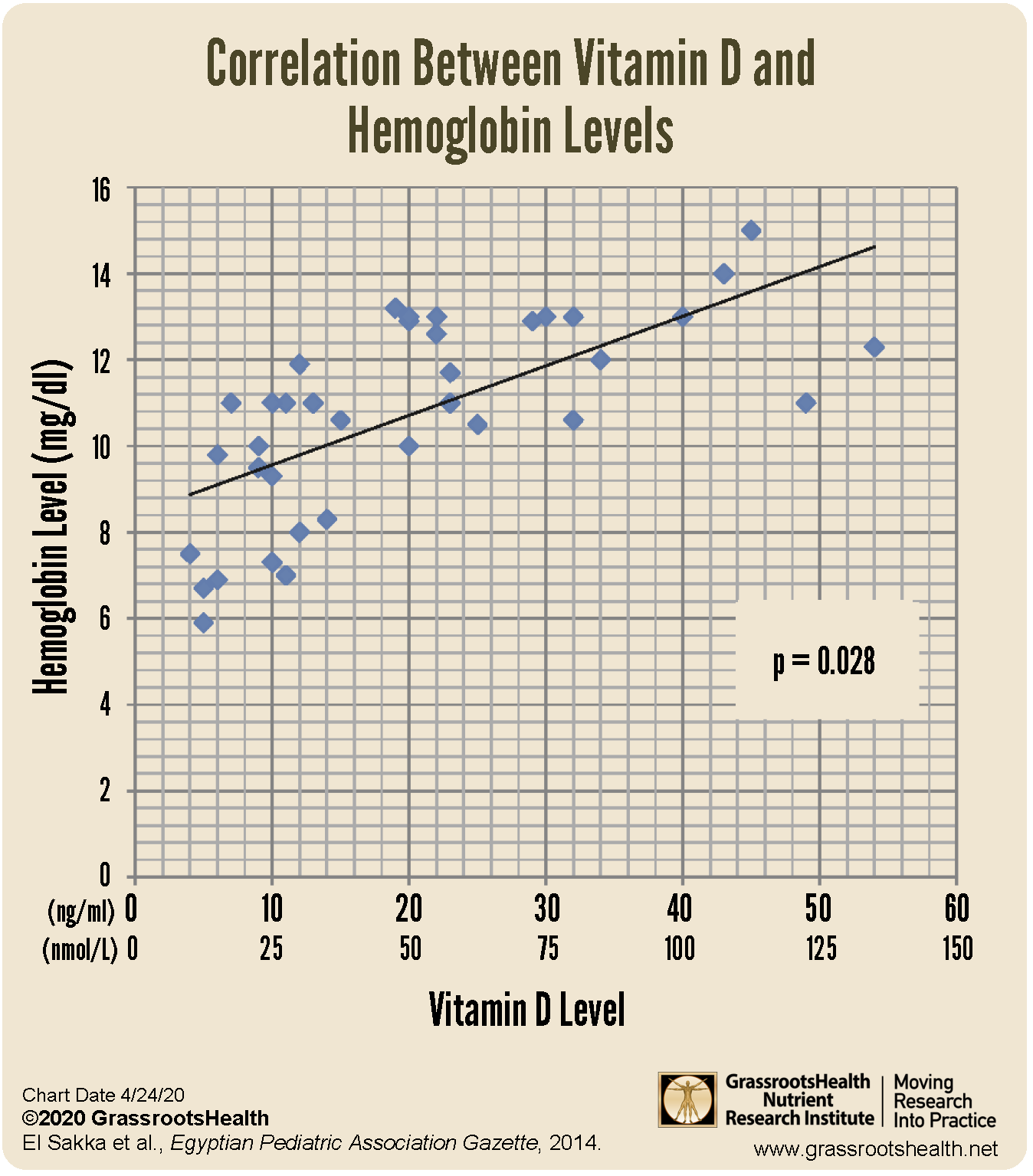Published on April 28, 2020
In a review article published recently in Nutrients, GrassrootsHealth presented evidence surrounding the clinical usefulness of vitamin D supplementation for reducing the risk of influenza and respiratory tract infections which may be useful in protecting against COVID-19 infection and mortality.
GrassrootsHealth has continually reported the importance of maintaining serum vitamin D levels between 40-60 ng/mL to reduce chronic inflammation and protect against the spread of transmissible and non-transmissible disease. Moreover, data from GrassrootsHealth participants showed that vitamin D status above 50 ng/mL is associated with a significantly reduced risk of experiencing flu-like symptoms.
We covered the first data presented on COVID-19 and serum vitamin D status. In this data set of 212 cases, insufficient (21-29 ng/mL) and deficient (20 ng/mL, or less) serum vitamin D levels were associated with more critical and severe cases of COVID-19 compared to sufficient vitamin D status (30 ng/mL, or greater) which were linked to more mild cases. We have also recently reviewed research that showed an association between acute respiratory distress syndrome (ARDS) and severe vitamin D deficiency.
Other Risk Factors for Respiratory Infections
Iron deficiency anemia is another risk factor that may increase the severity of respiratory tract infection, especially in those that are vitamin D deficient, as found in a study by El Sakka et al. of 96 hospitalized infants and 96 healthy controls.
Iron deficiency anemia is the most common micronutrient deficiency worldwide and acute lower respiratory tract infection (ALRTI) is a major cause of illness and death in developing nations where incidence of anemia is high. In this case-control study, 48 infants diagnosed with pneumonia and 48 infants diagnosed with bronchiolitis were assessed for BMI, signs of rickets, serum vitamin D levels, and hemoglobin levels and compared to age-matched controls.
Results showed that infants with signs of rickets (a vitamin D deficiency-driven disease) as well as those with low hemoglobin levels were at higher risk for ALRTI than controls. Severe vitamin D deficiency (0-5 ng/mL) and vitamin D deficiency (5-15 ng/mL) were associated with significantly increased severity of ALRTI cases (P = 0.001), as were low hemoglobin levels (P=0.028), as seen in the charts below.
Vitamin D and hemoglobin levels were also found to be significantly correlated with each other. The higher the vitamin D level, the higher the hemoglobin levels were as well.
Could You or Someone You Know Need More Vitamin D?
Do you know what your vitamin D level is? Be sure to test today to find out, and take steps to keep it within a target of 40-60 ng/ml or 100-150 nmol/L! Give your immune system the nutrients it needs to support a healthy you and protect yourself from unnecessary diseases.
Through GrassrootsHealth Nutrient Research Institute, you can also test your essential elements magnesium, copper, zinc and selenium, toxins such as lead, mercury and cadmium, as well as your omega-3 levels, inflammation levels and thyroid stimulating hormone (TSH) level. Find out your levels today! Log on to the test selection page (click the link below) to get your tests and see for yourself if your levels can be improved.
Make sure you track your results before and after, about every 6 months!
Click Here to Access the Test Page
How can I track my nutrient intake and levels over time?
To help you track your supplement use and nutrient levels, GrassrootsHealth has created the Personal Health Nutrient Decision System called
For each specific supplement, you can track what days you take it, how much, and many other details. This will help you know your true supplemental intake and what patterns of use work for you to reach and maintain optimum nutrient levels. Check it out today!










